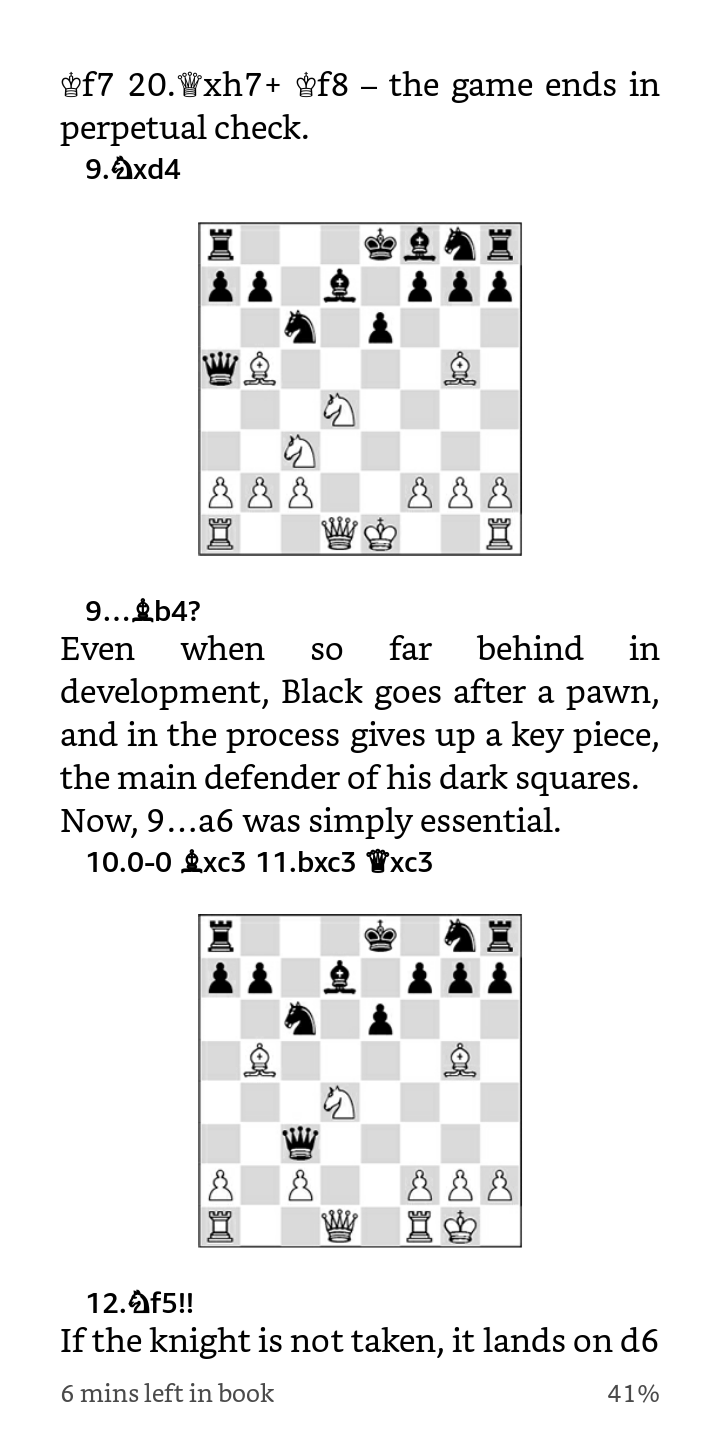So I'm a duffer (ca. 900 in blitz here) but my son is pretty good (over 1400 USCF and rising fast). I'm trying to get him to study books, because everyone says to do so. I get a Lev Alburt puzzle book and the third puzzle, my son vehemently disagrees with the second move in the line. I put it in Stockfish and he's right according to the engine eval--and further down the suggested line is a substantial mistake.
Next I pull out Manual of Positional Chess by Sakaev and Landa (which was randomly available to me, a 2006 publication). The first game presented is Tal-Uhlmann Moscow 1971. I'm not going to get stung again so I run it through the engine to vet it before showing my son, lest books lose all credibility with him. Here, the losing move identified by the authors is actually fine. The actual losing moves (11 ...Qxc3 and 12 ...exf5) get no comment. And the variant explored blunders by missing a hanging piece.
And though this is an opening chapter, the conclusion of the game is offered without comment, but Tal makes an unsound Queen sac and his opponent mistakenly declines it so the game has the W pattern in the eval that is common in games at my level. IMO, opening chapter or not, this is too much of a blunder (plus six to minus 25) to pass without comment. In fact four straight moves are gigantic blunders.
It doesn't really matter what sage advice is in this book--if I give it to my son, he'll call BS and perhaps rightfully so. He's strong-willed, skeptical, independent minded etc. So any book he trusts is going to have to be right all the time.
So is my sample of two representative of chess books written without the aid of engines?
Is this why so many authors say don't analyze with the aid of an engine?
Nobody got stung by an old classic.
Most good books offer ideas and understanding, not memorized lines. Grandmasters writing books after years of experience offered both. Occasional mistakes do not take away from the overall value.
The fact that your son is bright enough to question what he reads is a good sign.
Many books printed nowadays are quickly written with computer help by lesser players. They may offer reams of variations but offer little in the way of ideas and understanding.





 He copied it wrong. The book has 15..Qxc2.
He copied it wrong. The book has 15..Qxc2.






So I'm a duffer (ca. 900 in blitz here) but my son is pretty good (over 1400 USCF and rising fast). I'm trying to get him to study books, because everyone says to do so. I get a Lev Alburt puzzle book and the third puzzle, my son vehemently disagrees with the second move in the line. I put it in Stockfish and he's right according to the engine eval--and further down the suggested line is a substantial mistake.
Next I pull out Manual of Positional Chess by Sakaev and Landa (which was randomly available to me, a 2006 publication). The first game presented is Tal-Uhlmann Moscow 1971. I'm not going to get stung again so I run it through the engine to vet it before showing my son, lest books lose all credibility with him. Here, the losing move identified by the authors is actually fine. The actual losing moves (11 ...Qxc3 and 12 ...exf5) get no comment. And the variant explored blunders by missing a hanging piece.
And though this is an opening chapter, the conclusion of the game is offered without comment, but Tal makes an unsound Queen sac and his opponent mistakenly declines it so the game has the W pattern in the eval that is common in games at my level. IMO, opening chapter or not, this is too much of a blunder (plus six to minus 25) to pass without comment. In fact four straight moves are gigantic blunders.
It doesn't really matter what sage advice is in this book--if I give it to my son, he'll call BS and perhaps rightfully so. He's strong-willed, skeptical, independent minded etc. So any book he trusts is going to have to be right all the time.
So is my sample of two representative of chess books written without the aid of engines?
Is this why so many authors say don't analyze with the aid of an engine?